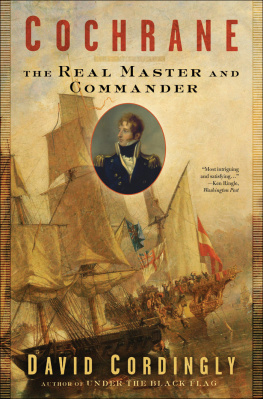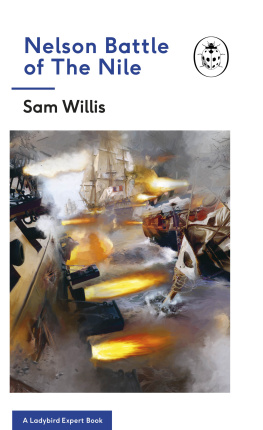Praise for Billy Ruffian:
Both a brilliant idea and an engrossing book that tells the story of a ship of the line in Nelsons day Billy Ruffian is for anyone interested in the Napoleonic wars or entranced by the adventures of Hornblower or Jack Aubrey Bernard Cornwell, Books of the Year, Mail on Sunday
Brilliantly original the result is a marvellously fresh light on a period so intensively researched that it can sometimes seem beyond further illumination The book is based on deep research but wears its scholarship lightly, being above all a compelling read. The original ship was not to be easily put down; nor is this admirable account of it
BBC History Magazine
Full of interesting detail Cordingly has unearthed a revealing study of the ships 387 crew The account of Napoleons brief incarceration on the ship in July 1815 is fascinating This original and well-researched micro-study manages to grab and hold the readers attention
Daily Telegraph
The accounts of the battles are as dramatic as anything youll read in Patrick OBrians novels This is a fabulous book, a richly illustrated labour of love, exquisitely written and fascinating from beginning to end
Waterstones Books Quarterly
David Cordingly, fresh from his histories of piracy and of women at sea, has given the old Billy Ruffian an extended major refit almost a rebuild and the result is a new and very readable biography of a famous ship from Nelsons navy
Focus
A satisfying tale of a mighty ship, and of a half-century under the mast in some of Europes fiercest wars Solid and well-researched, and a pleasure for fans of Patrick OBrian, C.S. Forester, and other chroniclers of the fighting sail
Kirkus Reviews
Cordingly paints a triumphant picture of Napoleons final surrender to the captain of this mighty maritime wonder and leaves readers begging for more amazing tales of victory on the high seas
Good Book Guide
Marine Painting in England
Nicholas Pocock, Marine Artist
Life Among the Pirates: the Romance and the Reality
Pirates: an Illustrated History
Ships and Seascapes:
an Introduction to Maritime Prints, Drawings and Watercolours
Heroines and Harlots:
Women at Sea in the Great Age of Sail

Bloomsbury Publishing, London, New Delhi, New York and Sydney
Copyright by David Cordingly 2003
First published in Great Britain in 2003
This electronic edition published in 2013 by Bloomsbury Publishing Plc
Bloomsbury Publishing Plc
50 Bedford Square, London WC1B 3DP
www.bloomsbury.com
The moral right of the author has been asserted
All rights reserved
You may not copy, distribute, transmit, reproduce or otherwise make available this publication (or any part of it) in any form, or by any means (including without limitation electronic, digital, optical, mechanical, photocopying, printing, recording or otherwise), without the prior written permission of the publisher. Any person who does any unauthorised act in relation to this publication may be liable to criminal prosecution and civil claims for damages.
Every reasonable effort has been made to trace copyright holders of material reproduced in this book, but if any have been inadvertently overlooked the publishers would be glad to hear from them
A CIP catalogue record for this book is available from the British Library.
eISBN 978-1-4088-4674-2
Visit www.bloomsbury.com to find out more about our authors and their books
You will find extracts, author interviews, author events and you can sign up for newsletters to be the first to hear about our latest releases and special offers
This book is dedicated to my literary agents Suzanne Gluck and Gill Coleridge
No I dont care a rap
For any Frenchy chap,
When they come theyll get the dressing they deserve;
Ive the best four in the fleet,
That the French well could meet,
With the Fightin Billy Ruffn in reserve.
Billy Blue
Heres to you, Billy Blue, heres to you!
As she broke the line with Howe,
So shes game to do it now,
And repeat her First o June here in these seas;
With their name for dauntless pluck,
and the Billy Ruffns luck,
I will fight as many Frenchmen as you please!
Billy Blue
Heres to you, Billy Blue, heres to you!
Verses 6 and 7 of The Ballad of Billy Blue which commemorated the action known as Cornwalliss Retreat. This took place off Brest on 17 June 1795. Billy Blue was the sailors nickname for Admiral William Cornwallis.
Contents
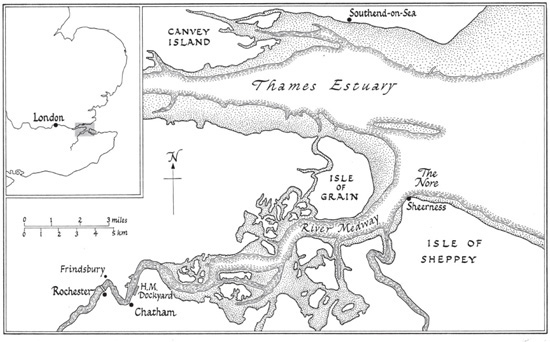
Map of the River Medway from Rochester to Sheerness and the Nore.
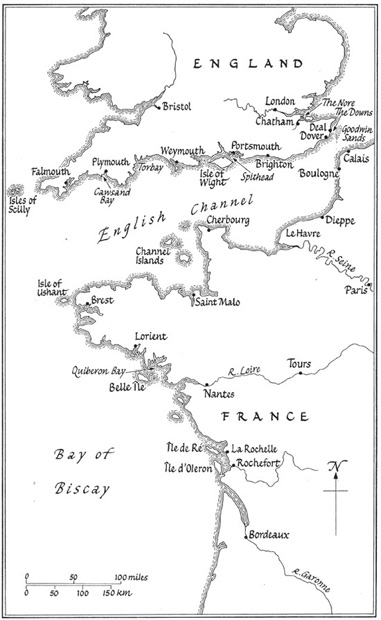
Map of the English Channel and Atlantic coast of France showing the principal ports, naval bases and anchorages.
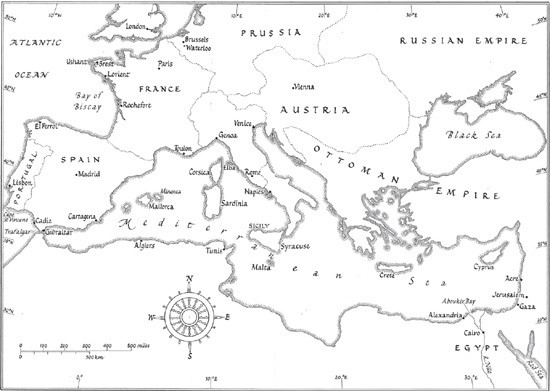
Map of the Mediterranean in 1798.
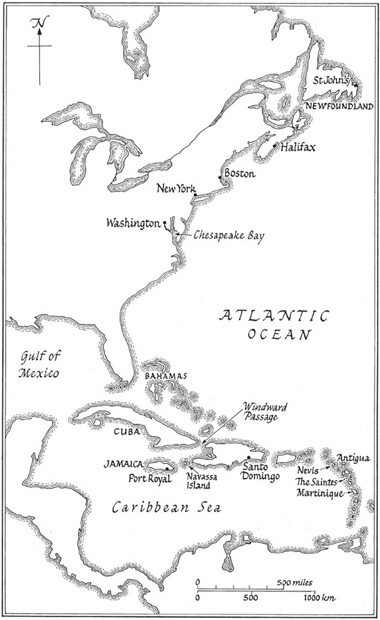
Map showing the West Indies, the coast of North America and Nova Scotia.
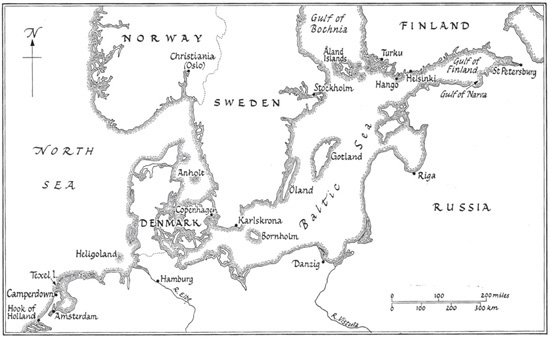
Map showing the Baltic Sea and the coast of Holland and Denmark.
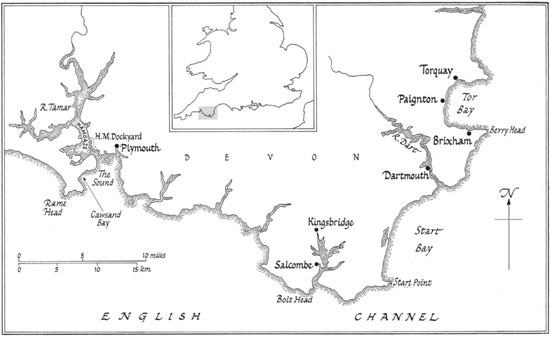
Map of the coast of Devon showing Torbay, Brixham, and Plymouth Sound.
This is the story of one ship, from her birth in a small shipyard near Rochester to her death fifty years later in a breakers yard at Plymouth. The ship was called Bellerophon, after the Greek hero who tamed the winged horse Pegasus, but the sailors had some difficulty in pronouncing her name and so she became known throughout the fleet as the Billy Ruffian or Billy Ruffn. She achieved lasting fame in 1815 when Napoleon surrendered to her captain a few weeks after the battle of Waterloo but she already had a long and distinguished record and had earned the title the bravest of the brave.
More than any other ship of her day the Bellerophon reflected the history of her times and in particular the long conflict between Britain and France which began in 1793 and ended at Waterloo. She was in at the beginning, she was in at the end, and she played a crucial role in the years in between. She was the first ship to engage the enemy in the opening moves of the Battle of the Glorious First of June, the first fleet action of the naval war against Revolutionary France. She was with the squadron commanded by Nelson which hunted down the French fleet in the Mediterranean and destroyed it at the Battle of the Nile: in that action she was totally dismasted and suffered the highest casualties of any British ship when she engaged the huge French flagship LOrient. At Trafalgar her captain was shot dead by a musket ball shortly before Nelson was fatally wounded. Her first lieutenant took over command, fought off four enemy ships, and went on to capture a prize and tow her into Gibraltar. In the intervening years she spent months baking in the tropical sun as part of the squadron on the Jamaica station charged with defending the West Indian colonies. She spent many more months being battered by winter storms off Ushant and in the Bay of Biscay as part of the fleet blockading the French coast. She escorted convoys across the Atlantic and kept watch on the Spanish fleet at Cadiz. She was a crucial link in the Wooden Walls of England, that extended line of British ships which finally put an end to Napoleons ambitious plans to invade England and march on London.
Next page

